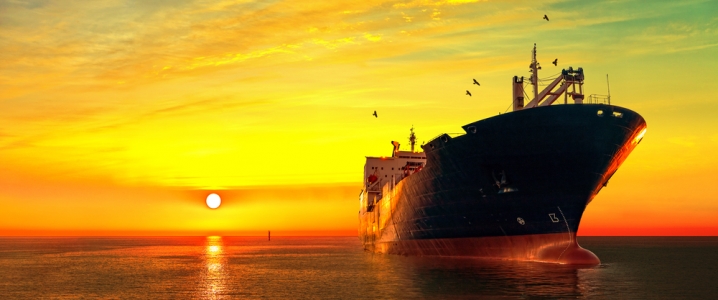Russian state-run gas giant Gazprom and Tokyo-based conglomerate Mitsui & Co. inked a memorandum of understanding (MOU) on liquefied natural gas (LNG) development last week. The MOU was signed during a meeting between Gazprom CEO Alexei Miller and Mitsui Chairman Masami Iijima during the Eastern Economic Forum being held in Vladivostok, Russia. The deal includes building an LNG plant on the Baltic Sea coast and would mark the two companies' second joint LNG project.
Miller said that there was great potential for LNG development cooperation between the two countries. Currently, Japan - the world’s top LNG importer - is also the largest buyer of Russian LNG, importing a 36 percent share of the country’s LNG production.
"Japanese companies are showing interest ... in Baltic LNG. Today, Gazprom and Mitsui signed a memorandum of understanding, based on which opportunities for cooperation on the project will be considered," Miller said.
Baltic LNG involves the construction of a 10 metric tonne per annum (mtpa) liquefaction plant near the seaport of Ust-Luga in Russia’s Leningrad region. The project aims to serve countries in the Atlantic Basin, the Middle East, South Asia, the Baltic and the North Sea regions.
Russian President Vladimir Putin also met Japanese Prime Minister Shinzo Abe during the forum last week where they discussed North Korea’s nuclear development program and other issues, according to media outlets that covered the event.
Abe said after his talks with Putin that Moscow and Tokyo were moving toward a peace treaty, something they never signed after World War II due to a territorial dispute over an island chain that Tokyo calls the Northern Territories and Russia calls the Southern Kuriles. Abe also told reporters that he had received Putin's support on efforts to resolve the issue of North Korean kidnappings of Japanese citizens.
"There is unlimited potential for Japan's relationship with Russia, as we lay the foundation for a peace treaty,” Abe said. Related: Is The Shale Slowdown Overblown?
More energy deals will be part of improved bilateral relations between the two sides going forward. However, this uptick in energy deals comes as the U.S. continues to heavily sanction Russia, including its energy sector, over a number of issues including its annexation of Crimea and its meddling in 2016 elections. Tokyo, for its part, will have to play a delicate balancing act as it makes a pivot of any magnitude toward Moscow, while appeasing its longest and most ardent ally - the U.S.
Japanese companies may also take part in the planned expansion of Russia’s Arctic LNG 2 project, the Sakhalin 2 and Baltic LNG projects, as well as a possible LNG transshipment facility in Kamchatka.
Headwinds for U.S. LNG
The potential of a stronger Russian-Japanese relationship also complicates the U.S.-Japanese friendship since the U.S. is pushing ahead with its second wave of LNG project development. This wave could potentially position the U.S. as the top global LNG producer by around 2025 as more projects come on-stream. However, with the threat of China levying a 25 percent counter tariff on U.S. LNG imports, this so called second wave of U.S. LNG development is threatened since many of these projects need both Chinese funding and more importantly long term off-take agreements to be able to reach final investment decisions (FID).
If Beijing makes good on its LNG tariff threat and if those duties remain for any length of time, which at this point is anybody’s guess, the U.S. will increasingly turn to Japan, South Korea and others to pick up the slack.
Yet, as Japan inks more potential LNG deals with Russia, its need for extra LNG volumes from these new American LNG projects will be minimized, also possibly creating friction between Washington and Tokyo over Japanese trade deficits with the U.S.
Long view
Tetsuhiro Hosono, the CEO of Japan Oil, Gas and Metals National Corporation (Jogmec), a state-run firm, said the company was prepared to be patient when negotiating energy deals with Russia, taking into consideration complications such as U.S. sanctions against Russia. Related: Why WTI Could Crash In The Coming Weeks
"It is true that there are some issues in the course of promoting Russian-Japanese energy cooperation, such as sanctions introduced by a third country. But what Jogmec and a lot of Japanese companies realize is that if we are patient and establish a reliable partnership we can develop stable, mutually beneficial business with Russia," Hosono said.
Moreover, energy cooperation between Moscow and Tokyo will likely increase amid Putin’s somewhat premature ambition to have Russia vie for the top global LNG producer slot, and as it seeks to increase its LNG sector amid flat growth projections for its gas pipeline sales into Europe.
In effect, Russia needs Japanese gas markets, and Japan needs the diversity of supply Russia offers. The U.S., for its part, has to formulate how it will respond.
By Tim Daiss for Oilprice.com
More Top Reads From Oilprice.com:
- The Altay Pipeline: A Geopolitical Game Changer
- Iraq’s Oil Production Problem
- Can Millennials Save Tesla?

















